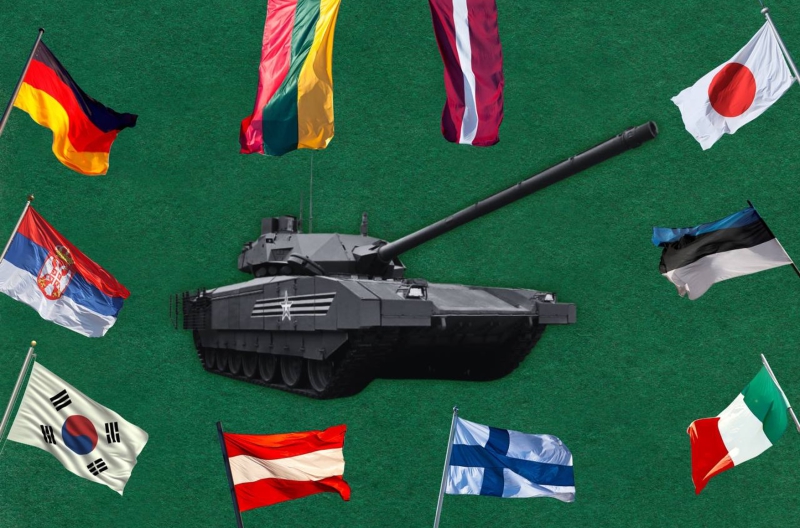Western companies continue to supply the Russian defense industry with the products it needs to do its job. The Insider has found out how companies involved in the production of Russian tanks import goods, and which countries are the most common suppliers to the Kremlin’s military machine. The research also revealed that a major Russian defense contractor obtained British citizenship after the full-scale invasion of Ukraine.
Uralvagonzavod, Russia's largest designer and manufacturer of tanks, howitzers, and other armored vehicles and equipment, has been headed by former government official and United Russia member Alexander Potapov for the past six years. Before taking up the post of CEO, he worked for the Russian government and Federal Service for Defense Contracts (Rosoboronzakaz).
The “special military operation” is a euphemism used by the Kremlin, the Russian government, and state propaganda to refer to the ongoing invasion of Ukraine.
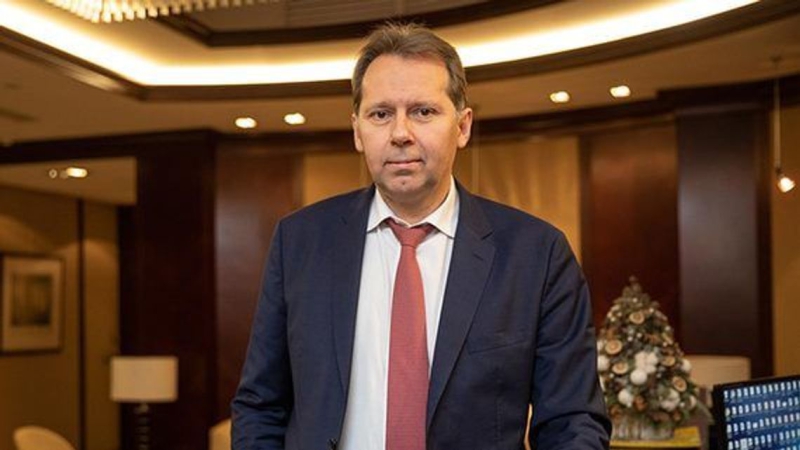
While Potapov served as deputy head of Russia’s Ministry of Industry and Trade overseeing the military-industrial complex, his daughter Polina studied fashion business at Italy's Istituto Marangoni, as discovered by The Insider. Potapova pointed out that she graduated from the Milan-based design school in 2016 on her Facebook page.
The “special military operation” is a euphemism used by the Kremlin, the Russian government, and state propaganda to refer to the ongoing invasion of Ukraine.
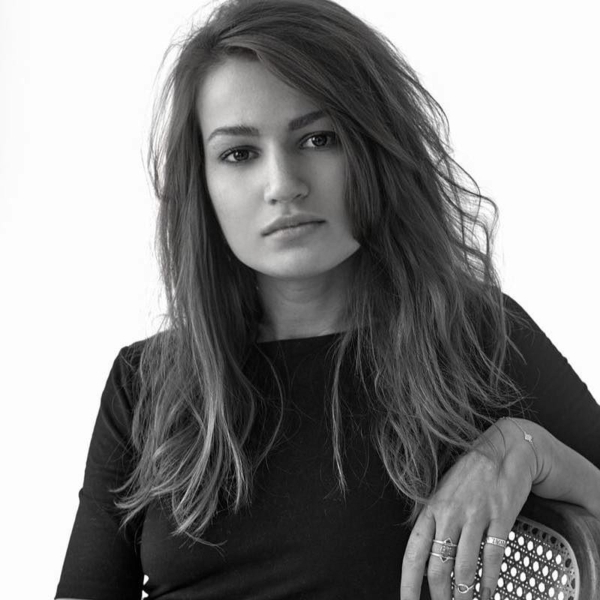
As it happens, it is Italian companies that often act as suppliers to Uralvagonzavod's subcontractors involved in tank production.
The main tank to come off the Uralvagonzavod assembly line is the T-90M Proryv. Vladimir Putin once called it “the best tank in the world.” The Proryv is equipped with the Sosna-U sight system, which was developed by Belarusian designers. However, due to various agreements, the sight is manufactured in Russia by the Vologda Optical and Mechanical Plant (VOMZ, part of the Shvabe Holding, owned by the Rostec State Corporation).
According to government procurement data, the supplier of metalworking lathes to VOMZ is JSC IPK Finval, which also works for other Rostec-owned companies. Finval receives spare parts for machine tools from the Italian firm M.T.S.R.L. of San Giovanni in Marignano in the province of Rimini.
Pumori-North-West LLC of St Petersburg is another defense supplier of metalworking machine tools to both VOMZ and Tactical Missile Armament Corporation. In January this year, the company imported a shot-blasting machine sold by Norblast S.R.L. of Bologna.
During the war, Pumori-North-West purchased steel needles, filter cartridges, shut-off valves, polymer rings and other components from C.M.S. S.P.A. (based in Zogno, Bergamo). Devco S.R.L. of Paderno Duniano in Milan provided the firm milling machines for metalworking (the value of the delivery in December 2022 was 50,000 euros). The Russian defense contractor also purchased an automatic washing machine for metal products from the Magido Group of Trezzano sul Naviglio, another town in the Milan metropolitan area.
The “special military operation” is a euphemism used by the Kremlin, the Russian government, and state propaganda to refer to the ongoing invasion of Ukraine.
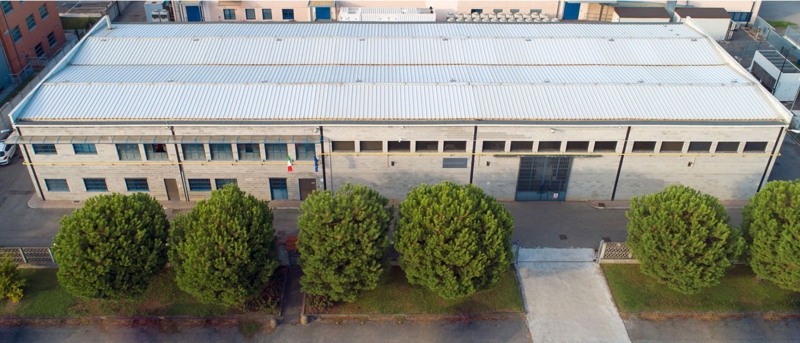
Companies from the Baltic States are often involved in logistics and transport services, supplying Russian defense companies with products from European manufacturers. For example, Gold Solution OU and Leolart.com transport Italian goods from Tallinn for Pumori-North-West, while Alekon OU provides warehousing services.
Sumar Tools OU supplies self-manufactured casting patterns and core boxes to Invest-Stanko LLC from Khimki in the Moscow Region. This firm supplies machine tools to JSC Zavod No. 9 — a Rostec subsidiary responsible for the production of barrel artillery systems. Its main products include guns for T-72 and T-90 tanks. There have also been reports of the plant's production of guns for the Armata, but so far this much-publicized tank is more of a PR project than a real force.
The “special military operation” is a euphemism used by the Kremlin, the Russian government, and state propaganda to refer to the ongoing invasion of Ukraine.
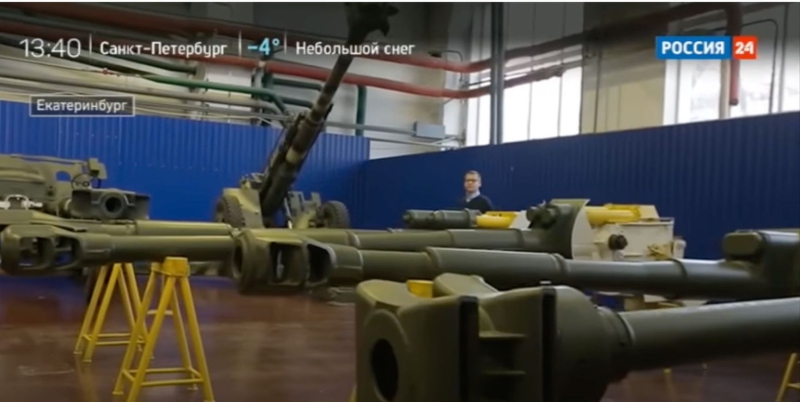
Elsorel OU supplies glue, glass textolite, organic decomposition lamps, aluminium nitrate and semi-processed silver to Oryol's Proton-Elektrotex. The company is part of AO Proton, a major optoelectronics manufacturer in Russia. Proton's work for the country’s defense industry is clear from its website. Its partners include Rostec, Almaz-Antey and Tactical Missile Armament Corporation. Proton's CEO, Vyacheslav Menshov, has even been awarded a medal for his “assistance to the [special military operation].” But none of that stopped Estonian businessmen from continuing to trade with Proton during the war.
The “special military operation” is a euphemism used by the Kremlin, the Russian government, and state propaganda to refer to the ongoing invasion of Ukraine.
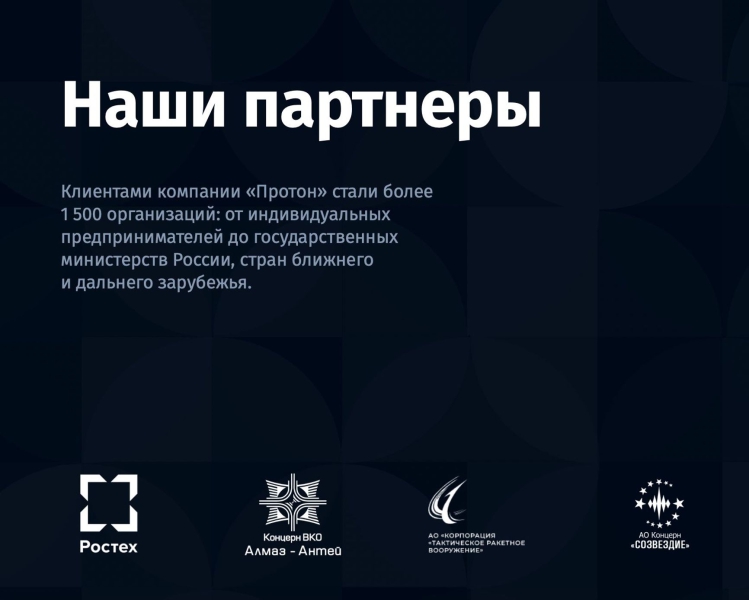
State procurement data shows that Proton supplies microchips to VOMZ (which makes tank sights) and multiple other defense companies. The company’s total portfolio of government contracts exceeds 2.8 billion roubles (approximately $30.985 million). The firm is yet to end up on an European Union sanctions list, despite already being sanctioned by the U.S.
The German company WTO Werkzeug-Einrichtungen GmbH is a supplier to several Russian defense companies. It sends parts for lathes to OTC-Technologies in the Sverdlovsk Region, which then sells tools to Zavod No. 9 and Uralvagonzavod.
Unimatic, also a Zavod No. 9 contractor, is another importer of WTO Werkzeug-Einrichtungen’s products. Unimatic and its business beneficiaries are discussed in more detail below.
WTO Werkzeug-Einrichtungen also supplies tool blocks to Penza-based LLC TD SMS, which is related to LLC Stankomashstroy, which supplies machine tools to Rostec. The latter is owned by Oleg Kochetkov, a United Russia deputy in the Penza Region Legislative Assembly.
The “special military operation” is a euphemism used by the Kremlin, the Russian government, and state propaganda to refer to the ongoing invasion of Ukraine.
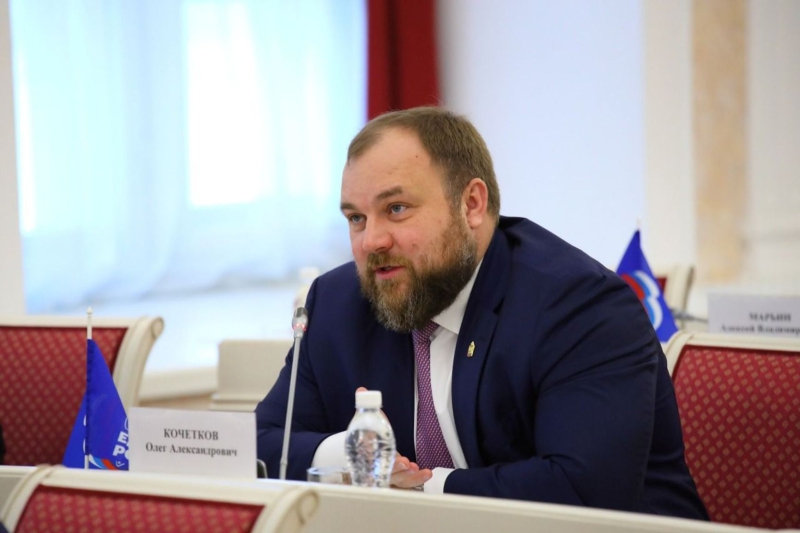
In November last year, Oxapa GmbH in Jena supplied optically processed glass blanks to NPK Makrooptika LLC in Ryazan. Makrooptika is one of Russia’s leading manufacturers of opto-mechanical systems for aircraft and military equipment, and a contractor for VOMZ and other Rostec subsidiaries, as well as for the FSB, the Ministry of Defence and the Tactical Missile Armament Corporation. Despite this track record, NPK Makrooptika has so far only been sanctioned by Ukraine.
Oxapa GmbH is owned by Vladislav Matusiewicz and Andrei Matusiewicz. The former is from Belarus, according to his Facebook page.
Rudi Gebel Gmbh & Co. Kg from Helmbrechts in Bavaria supplies parts for the assembly of power semiconductor devices to Proton in Oryol, which also imports products from Estonia and then supplies optoelectronics to military companies.
Seoul-based Mabuchi Korea Corporation supplies machine tool oil, lens grinding machines, polishing powder and other goods to the aforementioned Ryazan-based Makrooptika NPK (Research and Production Company). Deliveries will begin as early as January 2023.
Seolin Industry Inc., also from Seoul, supplies solutions, paints and other goods to JSC Elekond in the Republic of Udmurtia — one of the Russian military-industrial complex’s leading companies in the development and production of electrolytic capacitors. It also has contracts with VOMZ.
The “special military operation” is a euphemism used by the Kremlin, the Russian government, and state propaganda to refer to the ongoing invasion of Ukraine.

Japan Industrial Trading and Kaga Electronics both supply goods to Elekond, with the former exporting rubber gaskets and cathode foil, and the latter supplying ready-made electrolyte for the production of electrolytic capacitors.
“We are a Japanese trading company and we strictly follow all trade regulations and sanctions introduced by the Japanese government. We also are not dealing with any company mentioned in the US OFAC sanctions list or having a controlling shareholder in that list,” Japan Industrial Trading’s representatives told The Insider.
The only country that has imposed sanctions on Elekond is Ukraine. This means that Japanese firms can indeed trade with the Russian defense contractor.
The “special military operation” is a euphemism used by the Kremlin, the Russian government, and state propaganda to refer to the ongoing invasion of Ukraine.
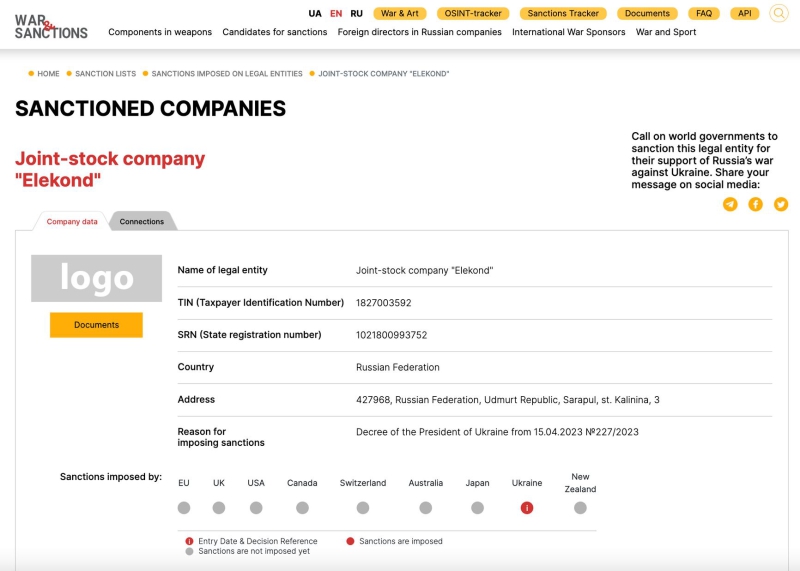
Elekond's chairman is Anatoly Naumov, head of the United Russia faction in the Udmurt Republic's State Council. This year he was awarded the Order of Merit for the Fatherland, in part for his “support of the fighters” during the invasion of Ukraine.
The “special military operation” is a euphemism used by the Kremlin, the Russian government, and state propaganda to refer to the ongoing invasion of Ukraine.
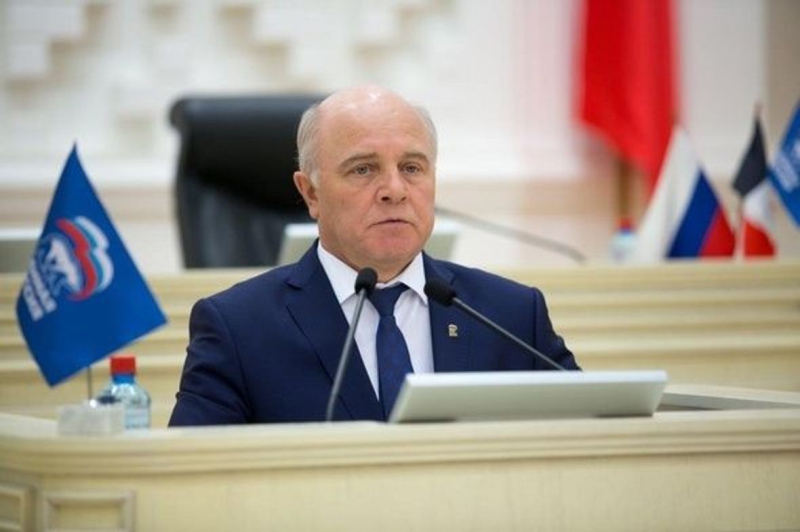
Serbia's Grindex D.O.O. manufactures high-precision grinding machines for cylindrical surfaces. Its Russian customers include Unimatic, which helps produce cannons for tanks, and Krona LLC of Ryazan, which was a subcontractor for Uralvagonzavod.
Virtus Zemun of Belgrade supplied a four-roller hydraulic sheet bending machine to the aforementioned Pumori-North-West in January.
The “special military operation” is a euphemism used by the Kremlin, the Russian government, and state propaganda to refer to the ongoing invasion of Ukraine.
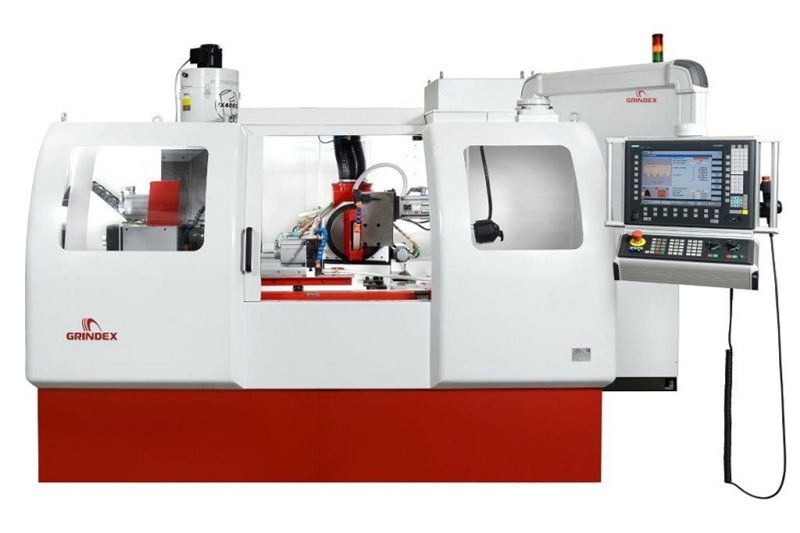
Until its recent liquidation, Riga-based Baltic Machinery supplied O-rings, couplings and other goods to Russia’s Unimatic (see below). Lithuanian UAB Didneriai’s customs warehouse in Vilnius was used to facilitate the trade.
The “special military operation” is a euphemism used by the Kremlin, the Russian government, and state propaganda to refer to the ongoing invasion of Ukraine.

The Lithuanian UAB Elfanta, on the other hand, is involved in the export of washers and plugs for lathes of Austrian origin to Unimatic. “We are a warehousing and customs documentation company. We do not collect any data on who is the recipient of the goods,” Elfanta told The Insider.
One of Unimatic’s most important suppliers (and therefore to the tank gun manufacturer Zavod No. 9) is EMCO GmbH in Hallein. The company supplies the Russian defense contractor with rotating pulleys and brackets, clamping rings, toothed belts and, indeed, machine tools.
The “special military operation” is a euphemism used by the Kremlin, the Russian government, and state propaganda to refer to the ongoing invasion of Ukraine.
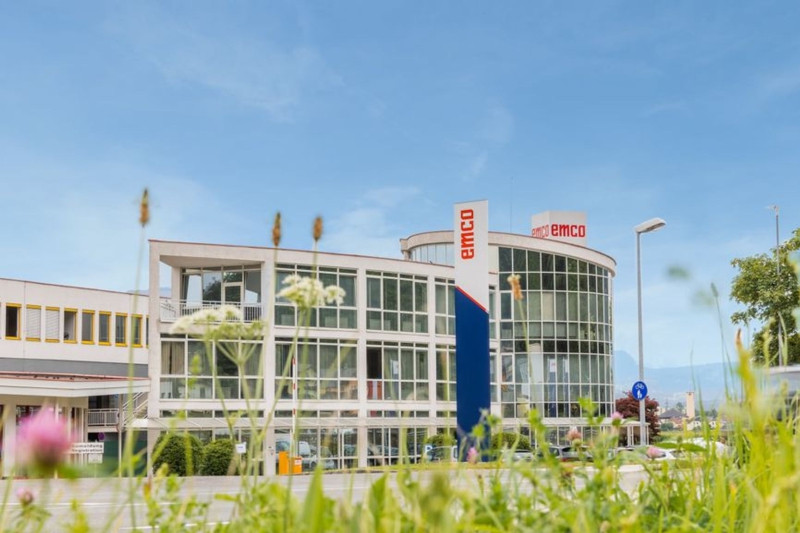
Unimatic is owned by 37-year-old Oleg Fishelev. The shares were transferred to him in 2018 from his father, Igor Fishelev, who has since become chairman of the company's board of directors.
The “special military operation” is a euphemism used by the Kremlin, the Russian government, and state propaganda to refer to the ongoing invasion of Ukraine.
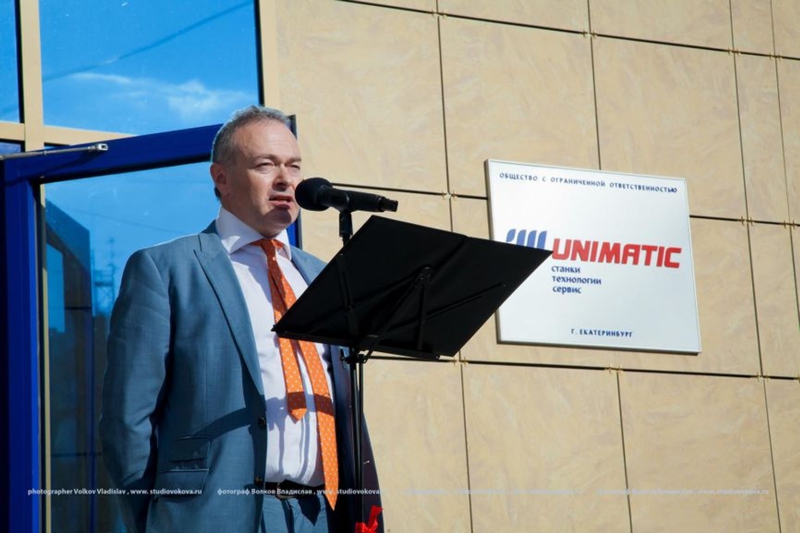
As The Insider has learned, Fishelev-senior is the owner of Arpack UK Limited in London. He was granted British citizenship in 2022 — after the full-scale Russian invasion of Ukraine.
The “special military operation” is a euphemism used by the Kremlin, the Russian government, and state propaganda to refer to the ongoing invasion of Ukraine.
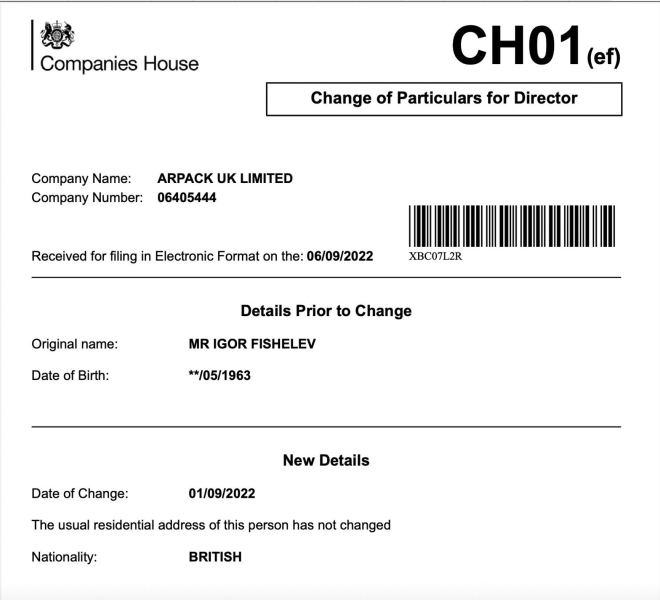
The Fishelevs' Unimatic works not only for Zavod No. 9, but also for other defense companies, including the Verkhneturinsk Machine Building Plant, which produces casings for field and tank artillery.
Austria's EMCO and Unimatic have been partners for many years. They even set up a joint venture — the company Emco-Rus, in which EMCO GmbH has a 65% share and Unimatic has a 35% share, is still in operation in Yekaterinburg.
Universal Photonics, based in New York, exports aluminum oxide and polishing powders to NPK Macrooptics and TPK RZM LLC. These Russian companies are contractors to the Vologda Optical and Mechanical Plant, which makes tank sights.
Another importer of Universal Photonics’ products is JSC Morion, which supplies quartz generators to the Russian defense industry.
Finland's Meconet OY supplied copper wire and parts of semiconductor devices to JSC Proton-Elektrotex during the war. This company is linked to Proton, which does not hide the fact that it works for Rostec, Almaz-Antey and the Tactical Missile Armament Corporation, in addition to having worked for VOMZ.
After this piece was published, Meconet’s representatives responded to The Insider. The Finnish company explained the shipment of goods to Russia six months after the full-scale invasion of Ukraine by the fact that the tooling belonged to their former Russian partners and had to be returned:
“Our disengagement from the Russian market began in March 2022 and was fully realized by August 2022. Additionally, the tooling owned by the customer, which was under our possession, was rightfully returned to them in August 2022 upon final settlement. It is important to note that we were legally obligated to return this property.”
The “special military operation” is a euphemism used by the Kremlin, the Russian government, and state propaganda to refer to the ongoing invasion of Ukraine.

